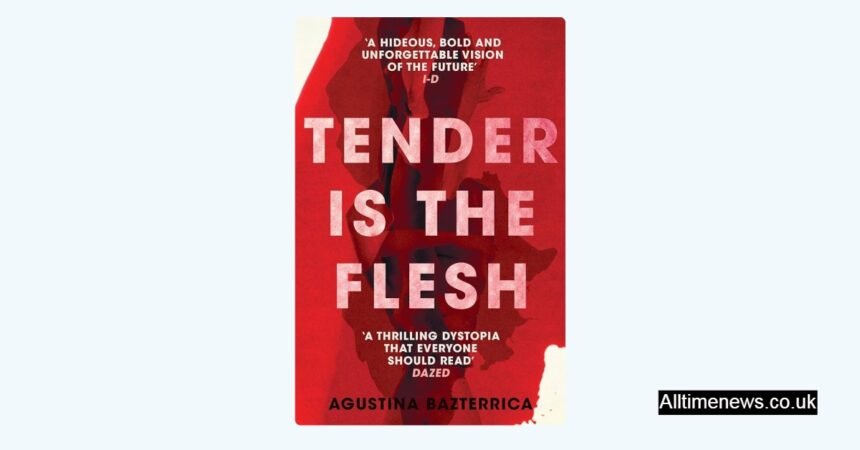Tender is the Flesh by Agustina Bazterrica is a chilling dystopian novel that explores a world where cannibalism has become normalized. It presents a society where human beings are farmed, processed, and consumed, raising dark questions about morality, power, and survival. This gripping narrative has gained widespread attention for its thought-provoking themes and stark portrayal of humanity. Let’s dive into the summary, reviews, and key themes of this disturbing yet captivating novel.
Summary
In Tender is the Flesh, a deadly virus poisons all animal meat, making it unsafe for human consumption. In response, governments worldwide legalize the consumption of human flesh, referred to as “special meat.” The novel follows Marcos, a man working at a processing plant where humans are slaughtered for food. Marcos is emotionally detached, struggling with the recent death of his child and the collapse of his marriage. His disconnection grows as he questions the brutal system he’s part of.
Things take a turn when Marcos receives a human female, referred to as a “specimen,” meant for personal slaughter. As he grows attached to her, Marcos wrestles with his conscience and the horrifying realities of the world he lives in.

Themes
Dehumanization
At the heart of the novel is the concept of dehumanization. In this society, people raised for slaughter lose their identity and are treated as livestock. Bazterrica critiques how society commodifies living beings through this dark premise, raising ethical questions about consumption and exploitation.
Power and Control
The novel also delves into power dynamics. Those in control, like governments and corporations, dictate who is considered “human” and who is reduced to meat. This imbalance mirrors real-world social hierarchies and highlights how people in power justify exploitation.
Morality and Survival
Tender is the Flesh forces readers to confront the lengths humanity will go to for survival. As societal norms shift, the novel raises the question of whether survival justifies abandoning morality.
Review of Tender is the Flesh
This book is a difficult read, but in the best way possible. It’s the kind of novel that lingers long after you’ve finished it. Bazterrica’s writing is sharp and unflinching. She doesn’t shy away from the brutality of this world, and the way she builds tension is masterful. The protagonist, Marcos, is complex and conflicted, and it’s hard not to empathize with his struggles, even though the world he lives in feels so foreign and horrifying.
That said, this book isn’t for the faint of heart. The graphic descriptions of slaughterhouses and the treatment of humans as livestock disturb, but they’re not gratuitous—they serve a purpose. They force us to think about our relationship with consumption and exploitation, even if it’s uncomfortable.
Many readers find the novel’s message powerful but haunting. It’s a book that makes you question your own values and the world we live in. If you’re a fan of dystopian fiction with real-world parallels, Tender is the Flesh will leave you both disturbed and deeply moved.
You may also like:
- Blood Meridian or the Evening Redness in the West Review
- The Serpent & the Wings of Night: Summary, Analysis and Reviews
- The Brilliant Healer’s New Life in the Shadows: Chapter 1 Overview
Conclusion
Tender is the Flesh haunts readers with its thought-provoking exploration of dehumanization, power, and morality. Agustina Bazterrica challenges us to confront uncomfortable truths about society, using graphic content to emphasize her sharp commentary on consumerism and exploitation.
Readers who dive into this dystopian world will find themselves questioning their own values and beliefs. The novel doesn’t just challenge societal norms; it forces individuals to confront their personal ethics in the face of survival. Tender is the Flesh is a compelling read for those who appreciate dystopian fiction that pushes boundaries and provokes deeper reflection.
